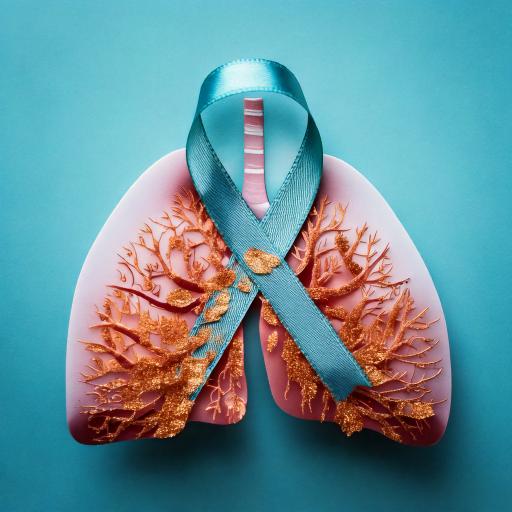
Lung cancer remains one of the leading causes of cancer-related deaths in the United States, accounting for approximately 23% of all cancer deaths (American Cancer Society, 2023). The Great American Smokeout, held annually on the third Thursday of November, serves as a vital opportunity to encourage smokers to quit and to raise awareness about the dangers of tobacco use. This month is not only dedicated to promoting smoking cessation but also to educating the public about the significant health risks associated with tobacco, including its direct link to lung cancer.
As we observe November as Lung Cancer Awareness Month, various organizations and health advocates come together to share resources, personal stories, and information aimed at reducing stigma, supporting research, and fostering a community of hope for those affected by lung cancer. By participating in the Great American Smokeout, individuals can take a stand against tobacco use and contribute to a broader movement focused on prevention, early detection, and improving lung health for all. Through increased awareness and education, we can help save lives and promote healthier choices in our communities.
Understanding Lung Cancer
Lung cancer primarily arises from two main types: non-small cell lung cancer (NSCLC) and small cell lung cancer (SCLC). Key risk factors include:

- Tobacco Use: Smoking is the leading cause of lung cancer, responsible for about 85% of cases (National Cancer Institute, 2023).
- Environmental Factors: Exposure to radon gas, asbestos, and secondhand smoke can significantly increase risk.
- Genetic Predisposition: Family history of lung cancer can elevate an individual’s risk.
Symptoms of Lung Cancer
Awareness of lung cancer symptoms is crucial for early detection, which can significantly improve treatment outcomes. Common symptoms include:

- Persistent cough
- Chest pain
- Shortness of breath
- Coughing up blood
- Unexplained weight loss
If you experience these symptoms, it’s essential to consult a healthcare provider promptly.
The Great American Smokeout
The Great American Smokeout aims to empower individuals to quit smoking and raise awareness about the health risks associated with tobacco. This year, the event will be held on November 21, 2024. Here are actionable tips to participate and support lung cancer awareness:
Actionable Tips
- Quit Smoking: If you smoke, consider making November 21 the day you quit. Use resources like quitlines or apps for support. The National Tobacco Quitline can be reached at 1-800-QUIT-NOW (1-800-784-8669). This service is available 24/7 and provides free support and resources to help individuals quit smoking and tobacco use.
- Support Others: Encourage friends or family members to quit. Offer to join them in a support group or participate in community events focused on cessation.
- Advocate for Change: Get involved with local health initiatives aimed at reducing smoking rates and increasing lung cancer awareness.
- Promote Lung Health: Engage in activities that promote lung health, such as exercise and maintaining a smoke-free environment.
- Educate Yourself and Others: Share information about lung cancer and the effects of smoking. Utilize resources from reputable organizations to foster understanding. Here is a list of some reputable organizations that provide valuable information and resources about lung cancer and smoking cessation:

- American Cancer Society: Offers extensive information on cancer types, risk factors, prevention, and treatment options.
- Website: www.cancer.org
- National Cancer Institute: Provides research-based data on various cancers, including lung cancer, as well as resources for quitting smoking.
- Website: www.cancer.gov
- Centers for Disease Control and Prevention (CDC): Offers information on the health effects of smoking, statistics, and resources for quitting.
- Website: www.cdc.gov/tobacco
- American Lung Association: Focuses on lung health, including information on lung cancer, smoking cessation, and prevention resources.
- Website: www.lung.org
- SmokeFree.gov: A helpful resource for individuals seeking to quit smoking, providing tools, tips, and access to quitlines.
- Website: www.smokefree.gov
Conclusion
Lung cancer awareness and smoking cessation efforts are essential for improving public health. Participating in the Great American Smokeout can be a pivotal step in encouraging healthier lifestyles and reducing the incidence of lung cancer. Together, we can make a difference.

We invite you to share your personal stories or experiences related to lung cancer and smoking cessation. Whether you have successfully quit smoking, supported a loved one through their journey, or have insights about lung health, your voice can inspire and motivate others. Let’s create an open dialogue within our community—your contributions can help raise awareness and foster a supportive environment for those looking to make positive changes. Together, we can champion this cause and work towards a healthier future for all.
References
American Cancer Society. (2023). Cancer facts & figures 2023. https://www.cancer.org/research/cancer-facts-statistics/all-cancer-facts-figures/cancer-facts-figures-2023.html
National Cancer Institute. (2023). Lung cancer. https://www.cancer.gov/types/lung
SmokeFree.gov. (2023). Get help to quit smoking. https://smokefree.gov
